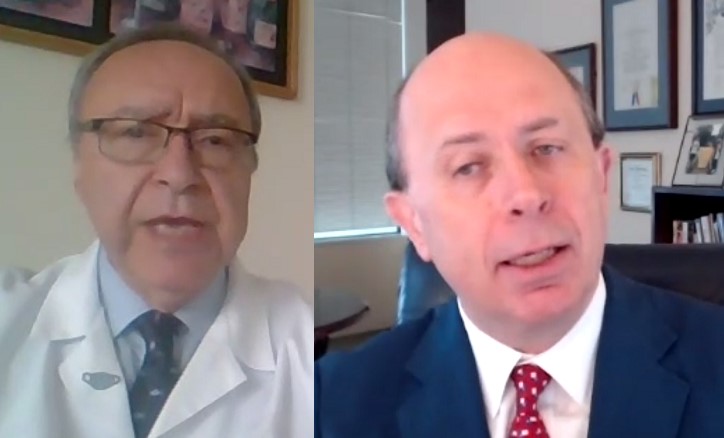Houston Experts Lay Out 9 Key Elements for Safe Return-to-Work Plans
Published Apr 15, 2021 by Maggie Martin
As more Houston companies consider bringing employees back to the workplace, experts say there are a number of critical factors to consider to ensure reopening plans are both safe and legally compliant.
The Greater Houston Partnership hosted Dr. Carl Vartian, Chief Medical Officer of HCA Houston Healthcare Clear Lake, and Tom Wilson, Partner at Vinson & Elkins, for a conversation about best practices for employers. The webinar held on April 15 is part of the Partnership's Restart Houston series. Here are the highlights from the virtual event.
Top 4 Safety Recommendations From Dr. Vartian
- Enable basic hand hygiene: Employers need to have a way for people to wash their hands. Also, for disinfecting surfaces, Dr. Vartian said using regular detergent and water is all you need, according to the CDC.
- Create a socially distanced environment: Guidelines on this are still in place and individuals should continue practicing social distancing with others, maintaining six feet where possible.
- Process of identification and isolation of sick employees: Evaluate how you screen your employees before they come to work and what procedures you have in place for sick workers. Communicate to employees that they should not be in the workplace if they exhibit any COVID-19 symptoms.
- Workplace controls and mitigation: Think about your workplace setup. Can employees continue working remotely? Can you stagger shifts to help mitigate the number of employees in the workplace?
Top 5 Best Practices for Workplace Procedures from Tom Wilson
- Appoint a point person: Assign someone who is ultimately responsible for your return-to-work program. “This needs to be a point person who is overseeing the program itself and is the face of the program. That’s very important,” said Wilson.
- Conduct a hazard assessment: Do a hazard assessment and mitigate those hazards before you bring employees back. Take a look at your workplace and consider how your employees interact. When does that happen and when does it need to happen?
- Mitigation protocol: How do you deal with a situation or element of your workplace that could pose a safety issue? Consider measures such as implementing barriers in between desks or alternating work schedules so there aren't as many employees in the workplace at one time.
- Inform managers and supervisors of protocols: Inform your managers and supervisors what your return-to-work plan is before you roll it out to all staff. When you want your leaders to communicate or enforce the program and they're uncertain of details, that can cause problems on how to communicate - and enforce - procedures.
- Establish a clear communication plan: Consider how you roll out the return plan to your employees. Be sure to follow up with employees by calling them. Ask if they have any questions about the plan. This is so that employees know exactly what to expect when they physically return to the workplace.
Implications of the COVID-19 Vaccine in the Workplace
Wilson said one of the main legal issues surrounding return-to-work plans is whether an employer can mandate or require employees to be vaccinated before returning to the workplace. He said yes, they can. The question is whether they should.
There may be employees who say they have a health condition that prohibits them from getting vaccinated, which falls under the Americans with Disabilities Act (ADA). Or, you could have employees who say they have a religious prohibition against vaccinations, which falls under religious rights.
"This is not a one-size-fits-all situation," said Wilson. Policies and procedures, he also noted, can vary across different industries. There are, for instance, situations where employees live in close quarters on the jobsite, making social distancing a challenging policy to put in practice.
Wilson also said some employees may resist getting vaccinated. He suggested employers consider incentives to help and encourage their employees to move ahead with getting a vaccine, such as PTO or other options.
"Instead of using the stick, you might use carrots," said Wilson.
To view a recording of this presentation, members can log into the Membership Portal at the top right of this screen. To learn more about membership with the Greater Houston Partnership click here, or contact [email protected]. New resources around vaccines, the reopening of worksites and more can be found on the Partnership’s COVID-19 Resources page.
 The Houston Report
The Houston Report


















